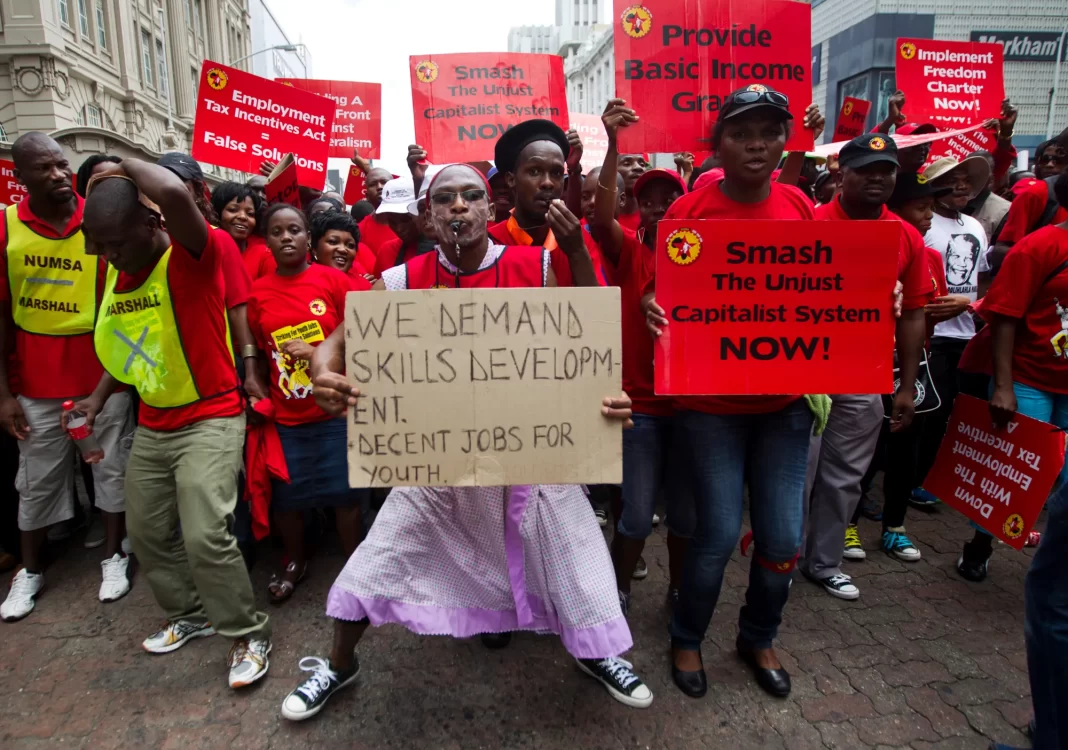By Thapelo Molefe
In a move to tackle South Africa’s escalating youth unemployment crisis, the Basic Education Department is rolling out Phase V of the Basic Education Employment Initiative (BEEI), which promises over 200,000 school-based job opportunities for young people across the country.
This phase of the initiative, running from 1 June to 30 November, is part of the broader Presidential Employment Stimulus and is being delivered in partnership with the Department of Employment and Labour and the Industrial Development Corporation, which will oversee the disbursement of stipends.
“This is a massive intervention to give young people real work experience and skills that can propel them into even greater opportunities and allow them to develop as professionals,” the department said in a statement on Monday.
Young South Africans, who are successful in their applications, will earn a monthly stipend of R4,000, with an additional R30 data allowance to support digital access.
But more than a paycheck, the programme is designed to equip youth with practical skills and integrate them into the daily rhythm of school life, where they will play active roles in supporting education delivery.
Participants will take up roles such as reading champions, curriculum assistants, e-cadres for digital learning, and assistants in sports, laboratories, workshops and learner care.
Others will serve handymen and handywomen, helping schools maintain their facilities.
Each participant will receive structured training and mentoring to help them build professionalism, confidence, communication and time management skills.
“This is not just about employment — it’s about learning, growing, and preparing for the future,” the DBE noted.
The scale of the initiative is unprecedented, targeting 204,676 opportunities across all nine provinces.
Schools have already begun preparing for the placements, with specific attention to ensuring youth from local communities benefit first.
“The idea is to empower youth where they live, to uplift communities and reduce transport burdens,” the department explained.
To qualify, applicants must be aged 18–34 (turning 35 by March 2026), not currently in education, employment or training, and not receiving any other form of income, such as a stipend or salary.
They must also reside within 5 km of the school, or30 km in the case of rural or farm schools. Preference will be given to youth studying teaching through distance or part-time learning, as well as those with NQF level 6 or 7 qualifications.
A valid South African ID is required and applicants must not have a criminal record.
The DBE has also committed to structured exit opportunities for participants, ensuring the programme serves as a stepping stone to future employment or studies.
The department confirmed that funds have been allocated to support pathways beyond the six-month work period.
Applications open on 22 April and close on 9 May. Young people are encouraged to apply only through the SAYouth.mobi platform, as no school-based or walk-in applications will be accepted.
According to Stats SA, youth aged between 15 and 34 continue to face challenges in the labour market. The results for the fourth quarter of the 2024 Quarterly Labour Force Survey.
INSIDE EDUCATION







